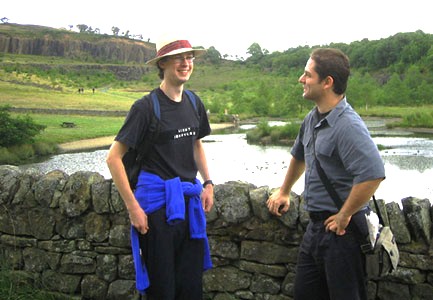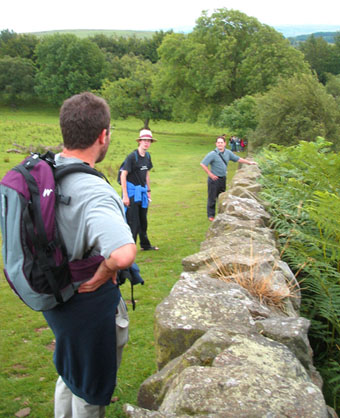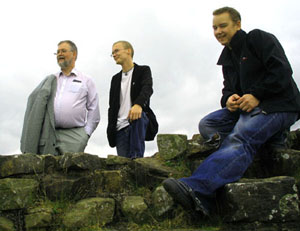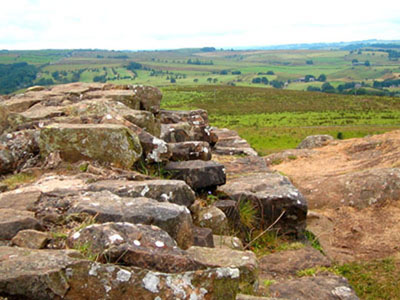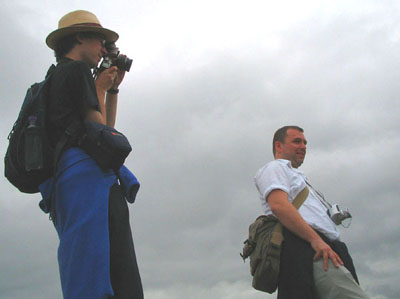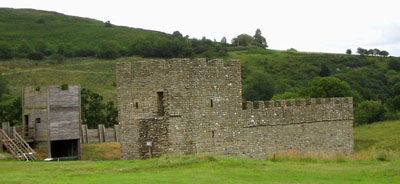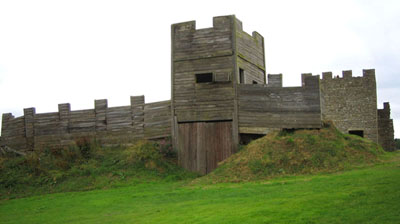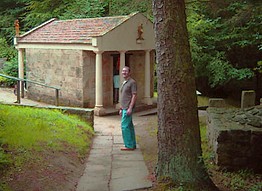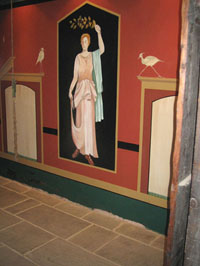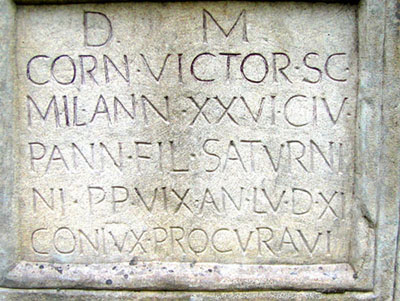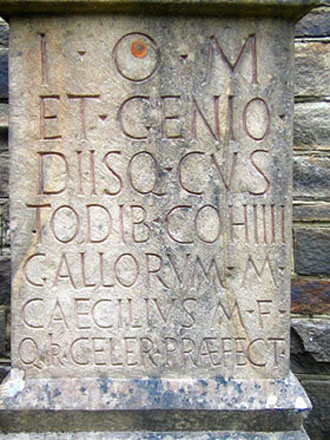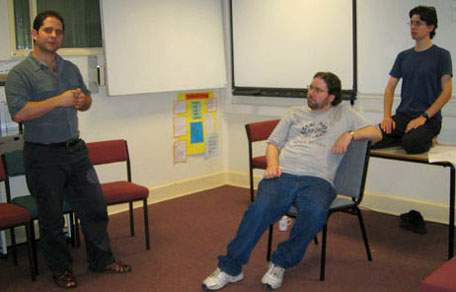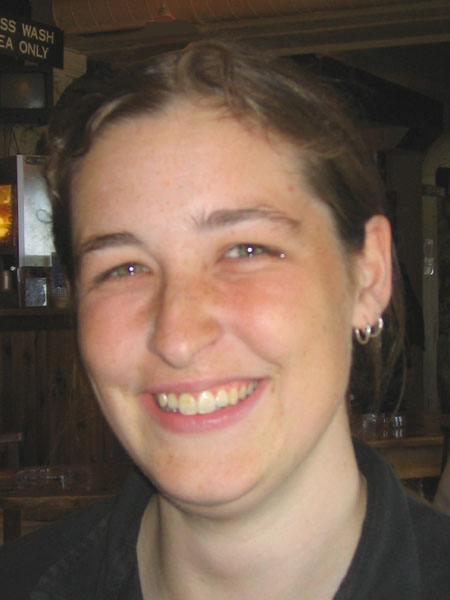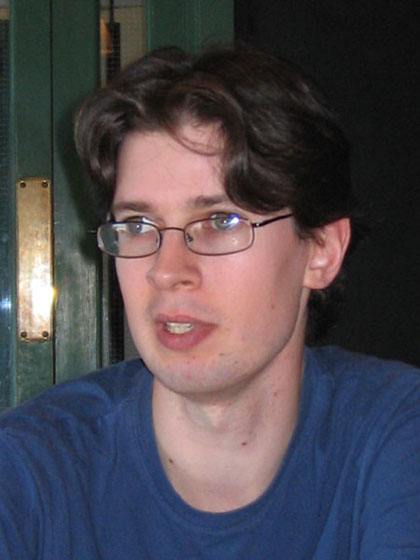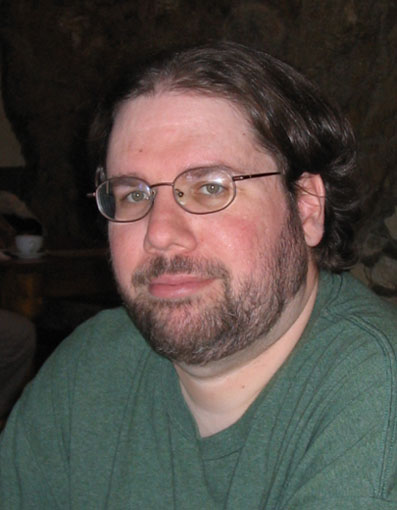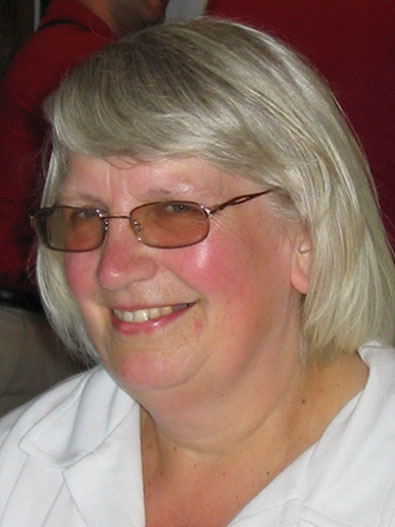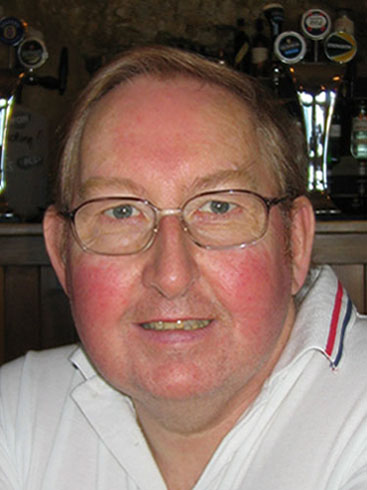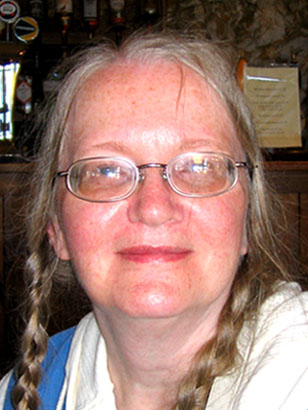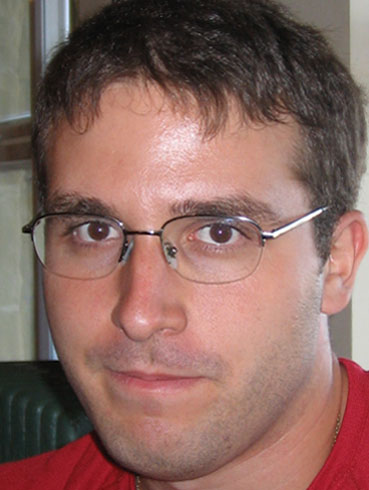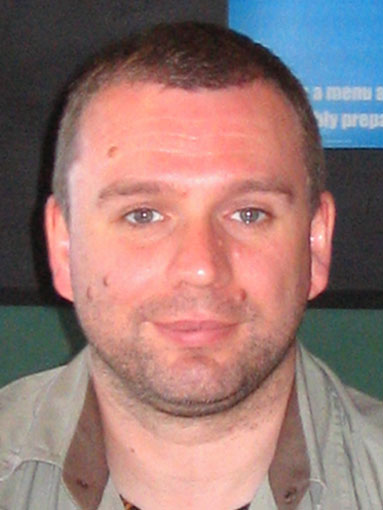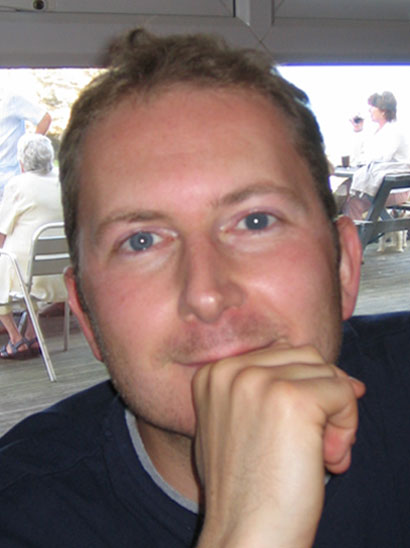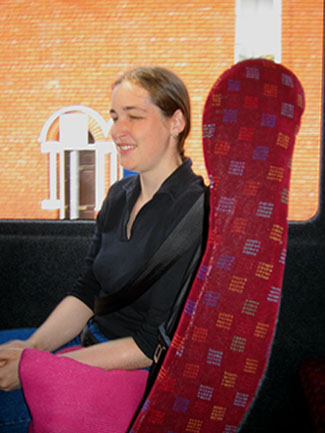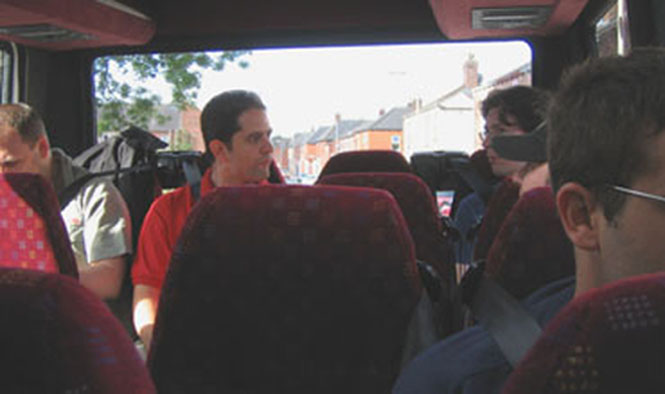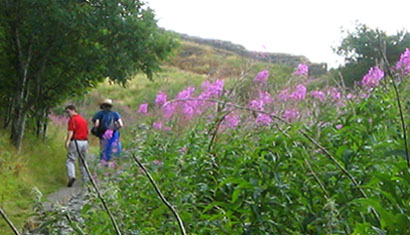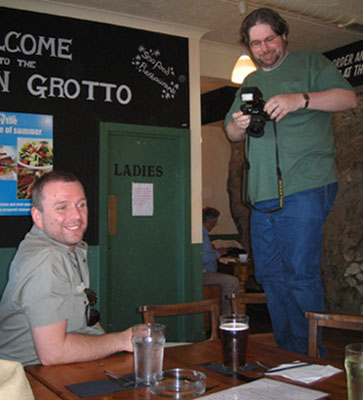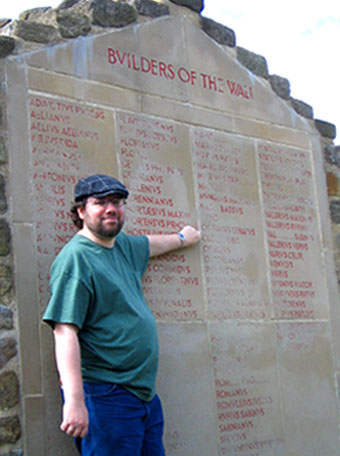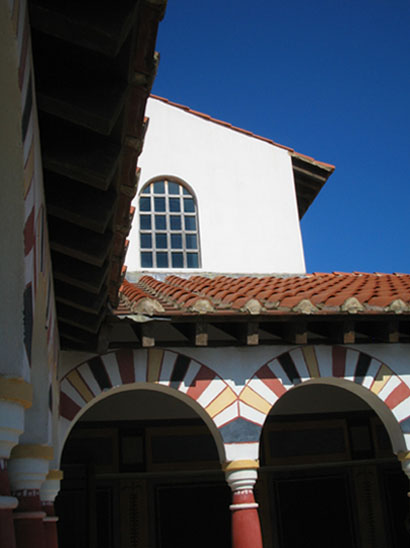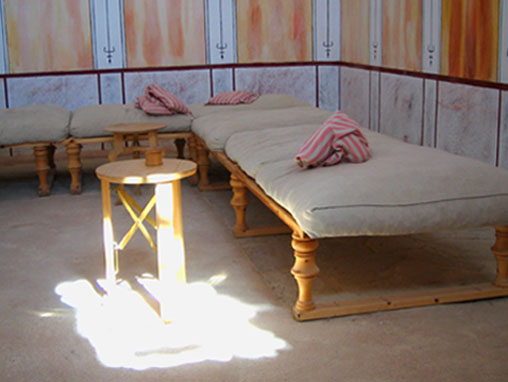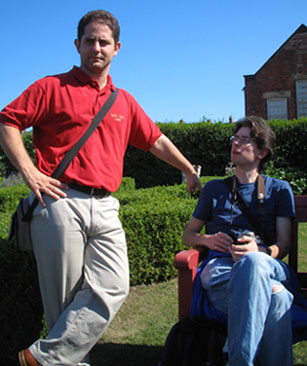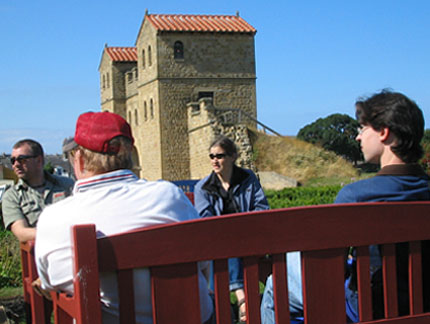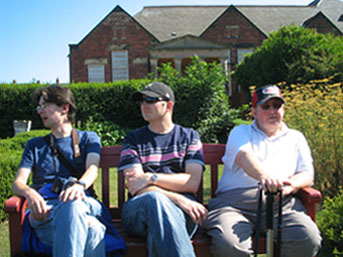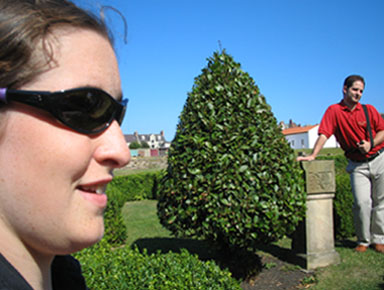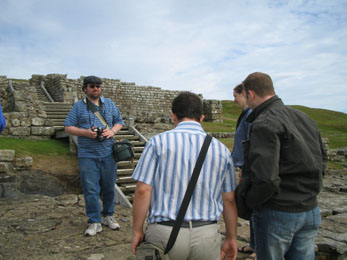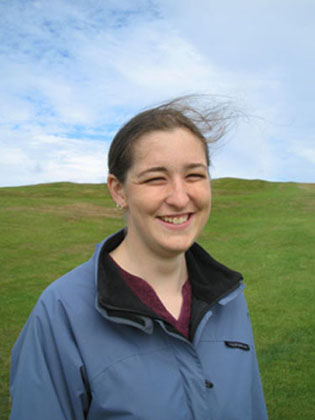Conventus Britannia 2759 auc - PMA pics (Nova Roma)
THIS IS AN ARCHIVED PAGE DOCUMENTING THE INTERNAL HISTORY OF NOVA ROMA: LEARN MORE ABOUT ARCHIVED PAGES
Contents |
Day 3: Non. Sext. ‡ (Saturday 5th August)
Luguvalium (Carlisle) is now a modern city, which seems sleeping a bit and longing for its golden age, in the 19th cc., when factories were plenty of workers, and that the sea, westward, brought ships from all over the world.
I have arrived in the night before, after a unusual trip from Normandy, whose boat left me in Plymouth, which I regret having not time to visit: the place of the city, its wonderful bay let the visitor understand why Britain has, for a long time ruled the seas.
I finally realized to catch a taxi to join the central station, and London, its underground where the electric light make the white brick walls more white. A last train, a private one and an incredible expensive price, just to remember that I left France and public railways. At sharp midnight, after a sweet travel through the summer night, I stepped down in Carlisle. Before St Martin College and its accomodation, confirmed by efficient Laureatus and a charmant Aureliana, High Street.
I had forgotten that we were Saturday. At this time, the drunking saturday ceremonies had not crossed the Channel. There are not so many pubs, but it is every twenty yards the same show of teen and young drunk people. At a moment, I think about crossing the street to join the quieter pavement. But I renounced, willing to taste this part of Britain life. I had visited several times Britannia, but it was 20 years before, and the mood was different.
A young woman takes my arm. She wants me to get her back home. I manage seizing my suitcase on my other hand, for it is a bit difficult holding both it and the lady. I finally leave the girl two blocks ahead. Ten minutes later, I reach St Martin College. A very sympathetic employee welcomes me, and I reallize that I am in northern England, the one that I happened to see, these last years, in Mike Leigh or Kenneth Loach movies. This is not Oxford England, where people speak the language that English teachers teach in France. This is another land, where people do not call you "you", but "y". In the first minutes, you feel as if you had been dropped off over a kind of Suburban Brigadoon. There is something of magic in this accent. With time passing, you tell yourself that there must be some old Celtic pronounciation behind this, and, finally, you feel relieved, and when you wake up, it is the morning and, at the floor below, time to meet, around a breakfast, the hosting team and all the yet arrived.
Aureliana (left) and Laureatus (right) are the directors of this morning expedition to Vindolanda. It is now time to check the vexillatio, in one of St Martin College courtyards. Cordus and Scholastica are in the center of the picture :
Our first stop is at Wallton Crags. The place deserves its name.
We have to walk in a pleasant track. The way is full of summer smells, of
recent rains et fresh morning, yet of bees and happy mood.
Astur has yet opened his bag of jokes and good words,
deploying his Latin or his good fluent vernacular language.
He looks to Cordus friendly, and I feel that the day will be a good one
(see picture, below). The track snakes along a quiet water, before
it draws us onto the top of the hill, where the Wall waits for us.
There, after a little wooden cattle door, we see the ridge, up
on our left. The clouds are fighting with the sun for ruling the sky.
On the way up, we understand that physical fitnesse is not a shared good in Legio Hispana : as a tough vet optio, Paulus seems to refrain launching "waiting for you, comrades!" while Astur, like Atlas the earth, is firmly holding Hadrian's wall, fearing that it might flee to Scotland (below right).
On the top of the hill, we are glad to meet, among a group of female tourists,
our friends from Thule, whose presence let our English hosts that something seems rotten in the kingdom of their raedae or of their road maps (see picture left below). Here thus stands the Thulenses triumviri : Censorius Quintilianus, Falco, and Pictor.
We are now watching in front of us, downhill, to the North, thinking to
the feelings that roman troops could have, 1,800 years before, when watching
Selgovae, Votadini and other Caledonian warriors running at them.
The wall is here at our feet, thick, impressing, commanding the whole landscape
around us (see picture, below left).
A few more pictures later, we leave Wallton Crags for Chesterholm, the ancient Vindolanda, where a paparazzo is shooting a Movie Roman star, who vaguely looks like Maximus, Ridley Scott's hero (see picture, below right). Stormy weather is coming, but Lupus stands firm!
At this time, it is interesting to note that, except the settlements that they have created ex nihilo, Romans have been clever enough not to change the names of the places, villages, towns of the countries that they have invaded and occupied.
We have seen, for example, that Carlisle was called "Luguvalium" and Chesterholm "Vindolanda".
Both names come from the celtic language, which was common to the most part of Europe at Republican times. Luguvalium is a latin interpretation of "Lugu-ialon" which means "place/settlement of Lug".
Lug was one of the main celtic gods, the equivalent of Apollo. In the same mood, the french modern city of Lyon has ingerited its name from celtic/gallic "Lug-dunum" (i.e. the fortress of Lug).
Vindolanda meant "white moor".
This observation is not an exception : we may verifiy this phenomenon
all around Romanised Europe.
Vindolanda was a key position in the defence against northern peoples. It is not "on" Hadrian's wall, but a few kilometers south, roughly in the middle of the length of the wall crossing England. Before the wall, the place had already welcome several forts. Vindolanda is, close to the roman fort, the most extensive civil settlement to be seen in whole Britain. It was first built in the middle of the 2nd century and has been
occupied, with a short break, until the late 3rd century.
Once the civil settlement visited, you are attracted by a full-scale reconstruction of a turret and lenght of the Wall, on your left. This was the south gate of the early fort. (see pictures, below, left and right).
We may still find roman local soldiers guarding
the limes (see picture right).
After having visited the remains of the roman fort, we have walked
down in direction of the museum.
Here appears first a reconstituted temple, that Laureatus is
showing to me. (see picture below, left).
The paintings inside have been recreated too, even if the modern painter
is not as skilled than Pompei's artists (see picture far right below).
Below the temple
a romantic small
bridge takes us to
the museum. Before,
a wall bear two roman
inscriptions.
With Laureatus,
we approach them,
soon joined by Paulus
and Astur (see Cordus pictures).
We succeed decoding these interesting writings.
If you are interested in Victor's inscription translation (see picture left below),
please report to the article on the following page :
http://www.crystalwebvision.com/aedil/albucius.htm.
And I let you fight against the other inscriptio, Caecilius's one (see picture right below).
Day 4
a.d. VIII Id. Sext. ‡ (Sunday 6th August)
My memories of this day are getting less acute with time passing, but if I do not mistake, it was the day where we go to a pub in High Street and have a very pleasant meal. The weather was cloudy and a small rain began to fall when we entered there. It was a sunday and we had to wait a few minutes to get a long enough table to welcome us. The waiters were sympathetic and efficient, the place comfortable and the food very convenient. In the last part of the meal, Astur has encouraged Lupus and Gracchus to speak Latin, giving examples, insisting on how expressions were easy to use and remember, underlining pronounciation, accents and stresses. Astur, also very fluent in English, seems having inheritated his parents' talents, who are teachers. He uses pedagogy as Molière M. Jourdain made prose without realizing he did.
When we come back in St Martin College, and at this time no one thought strange that Romans be sheltered in a Christian private school (!), Laureatus proposed for the evening a first game of Res Publica, the famous board game. The decision was quick taken and we prepared our mind fighting around the Board. But another time would occupy us in the end of the afternoon : a Senate session.
I must tell here, and I have already told it to Cordus, that I have been deceived by the organisation of this session. Naturally, what was at stake was not recreating the ancient Senate or even Nova Roma senate for we were neither as many as we should be, nor fully legally allowed to. What A. Apollonius Cordus proposed to us was to recreate a few time segments of a senate session.
The bad points of this session were first the fact that we had not been warned nor asked to wear our togae or stolae. This would have given the thing another touch, and it seemed to me quite normal that, if we had taken our Roman clothes to Britannia, it was probably not to let it sleeping in our suitcases. We had yet, in the morning after breakfast, wore it, Paulus, Astur and me, and had given a good friendly picture which I still like watching regularly.
Thus Scholastica was the only one to be clever enough to have anticipated things and to wear her stola.
Second, our Senate session took place in a classroom that our guests had to rent the college, and which seemed, and I keep this feeling now, not worth the event. Third, as we had not prepared anything, the exercise was not to get us busy for hours!
The good points were both, imho. First Cordus has saved, thanks his knowledge of Rome and how the Senate worked, the session. He well structured the different times of the event. Then, everyone intended to give her or his best, and we finally spent a good time with serious times when serious Novaroman matters were evoked, but also sincere smiles and laughs when some of us underlined her/his speaker effects.
Here are two shots that I have taken of this "Senate meeting" :
Day 5
a.d. VII Id. Sext. ‡ (Monday 7th August)
Riders eleven
Misses the picture shooter, this time Publius Memmius Albucius. Here come the terrible ten :
"On the road again"
A walk up to Cawfields castle
Prandium
Segedunum
Arbeia
Day 6
a.d. VI Id. Sext. ‡ (Tuesday 8th August)
Housesteads - Vercovicium
Chesters - Cilurnum

